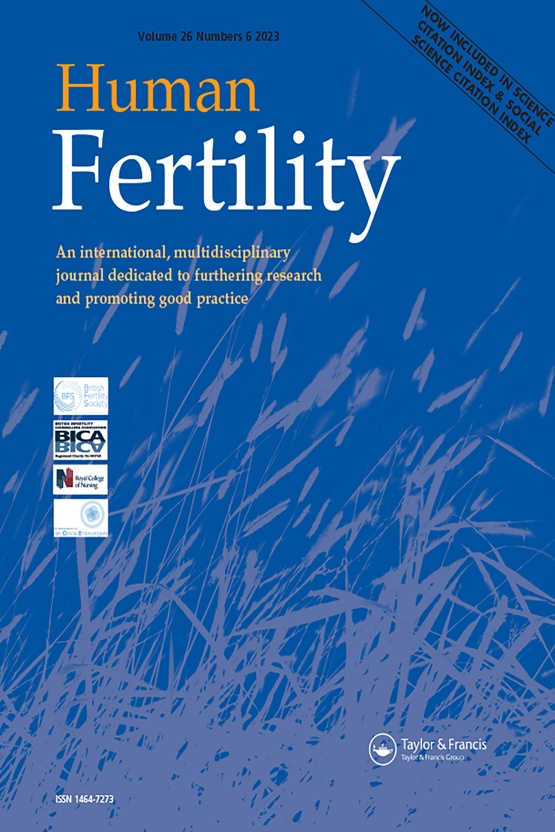Submit a Manuscript to the Journal
Human Fertility
For an Article Collection on
Improving Fertility Education: Who, Why and How?
Manuscript deadline
01 September 2024


Article collection guest advisor(s)
Prof. Bola Grace,
University College London
[email protected]
Improving Fertility Education: Who, Why and How?
Over the last two decades, there has been a marked increase in childbearing at advanced maternal and paternal age in many high-income countries. These trends show that individuals are progressively delaying having children for many justifiable reasons affecting wider determinants of health. However, the demographic shift towards delayed family building is of increasing global public health concern. In response, there has been a concerted effort from educators, healthcare professionals, charities, reproductive health groups, and policymakers to improve fertility education. For example, The British Fertility Society established the Fertility Education Initiative “to educate and support informed decision-making about fertility, reproductive health and planning for a family, when it is desired.” Several organizations globally have embarked on similar initiatives to improve fertility education.
A large body of research has indicated that people’s fertility education is generally low. This starts from school education on the topic, with evidence of large gaps in the school curriculum on fertility for future childbearing. Where research has been conducted, several population groups have also demonstrated low fertility knowledge, for example on topics such as age-related fertility decline, menstrual cycle, and the effectiveness of assisted reproductive technologies. For those who desire children, increased education on the factors that influence fertility and reproductive health could increase future chances of achieving their desired intentions towards family building. It is therefore important to explore effective fertility education in order to ensure that people are able to make informed choices about their family building preferences.
This Collection invites contributions that explore and expand on different aspects of effective fertility education. We welcome articles that explore fertility knowledge, attitudes, and behaviors across a variety of population groups. Emphasis is also placed on inclusion and methods of reaching underrepresented groups as part of efforts to improve fertility education; global perspectives are welcomed. The Collection is also open to articles which aim to investigate wider determinants that influence fertility decision making, with an understanding of how this may impact the extent to which education on this topic will be effective. Furthermore, articles which explore the design, development, and implementation of tools to improve fertility education will be valuable, as will those that evaluate the effectiveness of any fertility education delivered. By bringing together a diverse range of articles, this Collection will serve as a keystone for researchers, educators, practitioners, and policymakers looking to improve fertility education.
Bola Grace has decades of experience in women’s health across academia and industry, with extensive research on fertility awareness. In terms of her broader interests, she values collaborative research into a variety of topics including Sexual and Reproductive Health, Digital Health, and Health Equity.
Disclosure Statement: Prof. Grace declares no conflict of interest regarding this work.
Benefits of publishing open access within Taylor & Francis
Global marketing and publicity, ensuring your research reaches the people you want it to.
Article Collections bring together the latest research on hot topics from influential researchers across the globe.
Rigorous peer review for every open access article.
Rapid online publication allowing you to share your work quickly.
Looking to Publish your Research?
Find out how to publish your research open access with Taylor & Francis Group.
Choose open accessSubmission Instructions
All manuscripts submitted to this Article Collection will undergo desk assessment and peer-review as part of our standard editorial process. Guest Advisors for this collection will not be involved in peer-reviewing manuscripts unless they are an existing member of the Editorial Board. Please review the journal Aims and Scope and author submission instructions prior to submitting a manuscript.